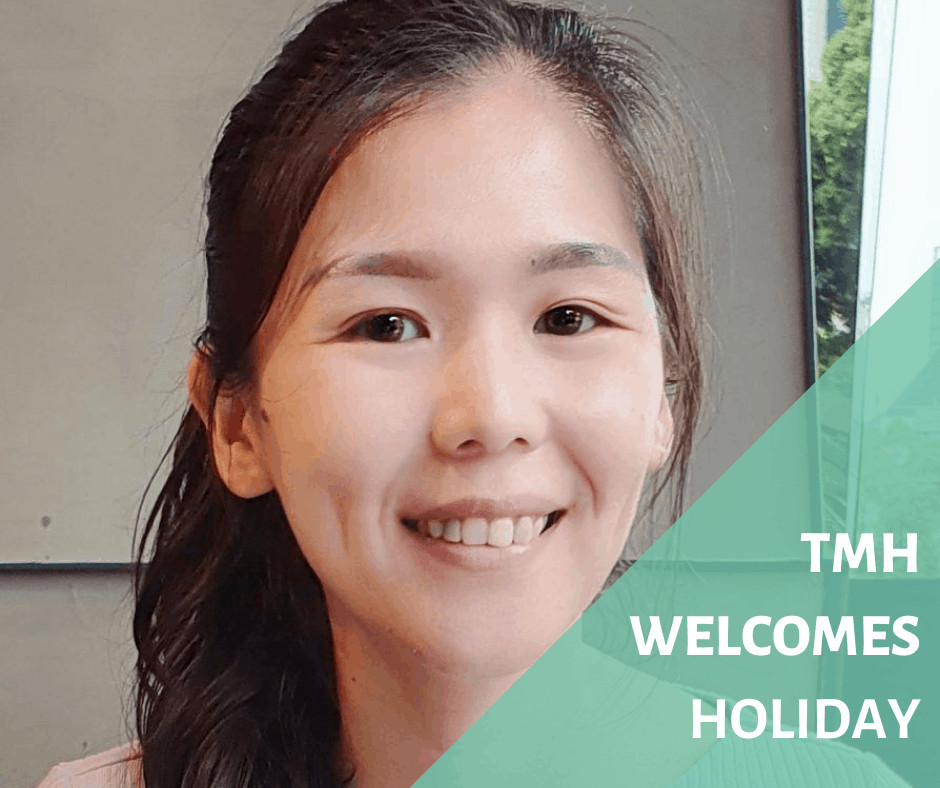
We are delighted to welcome our new psychologist, Shok Hong “Holiday” Ooi to Tokyo Mental Health’s growing team of service providers! Holiday has a master’s degree in Psychology from Universiti Sains Malaysia. Before coming to Japan, she worked as a lecturer and researcher at university in Malaysia, lecturing in psychology. Her research focused on interpersonal relationships and positive psychology. Holiday also worked as a school counselor in Malaysia, assisting adolescents with school related issues.
Holiday provides psychological evaluation services in English and therapy services in English, Mandarin, and Malay.
We asked Holiday some questions to get to know her better…read more below!
What is your main research interest?
I am interested in positive psychology-related research. Positive psychology is one of the most exciting areas in mental health research currently, with a focus on how changes in human behavior can enhance and improve a person’s life, experience, and sense of well-being. Other domains in psychology focus on diagnosis and the prevention of mental illness by striving to deepen a person’s understanding of their mental health problem and trying to intervene ‘against’ the mental illness. However, good mental health is about more than just alleviating the negative aspects of life. A person must be able to identify his or her strengths and innate capabilities for life to flourish. In other words, my research interest is more about thriving than surviving.
More specifically, my research interest is in combining the research on interpersonal relationships with positive psychology. I am eager to understand how different aspects of positive relationships can influence the happiness and well-being of a person. Previously, I have conducted research on the relationship between the presence of elements indicative of positive relationships on social media and the well-being of the person. The findings have shown that there is a significant correlation between the presence of elements indicative of positive relationships and well-being, which supports the view that social support, trust, and reciprocal interactions are important in a relationship that supports wellbeing.
Besides my research on the different aspects of positive relationships, I am also keen to understand how the application of positive psychology can enhance interpersonal relationships, self-help, stress management, and education.
There are a variety of therapies based on positive psychology, such as well-being therapy and psychotherapy. I would like to be involved in more research focused on exploring the effectiveness of these interventions and understanding more about how they can help clients be freed from mental illness and achieve greater well-being.
What do you enjoy most about being a psychologist?
The thing I enjoy the most about being a psychologist is helping people look at the variables that are affecting their behavior, thoughts, emotions and actions, and helping them explore how to respond in different ways. Then, we go back and look at how the variables change. It is so much fun, and a great achievement, when a client and I together get things ‘figured out’ and watch what happens next. It does not matter whether I am working exclusively with children, adults, married couples, or families, I enjoy the opportunity to meet and help people from all walks of life. I feel honored to walk with these people and play a part in their journeys. It makes me really proud to see how people make real progress, improve their quality of life, work towards their goals, and finally claim their voice.
I celebrate those moments when I see hope in the eyes of my clients, see their recognition of their own greatness, or hear a long-abandoned laugh. Being a counsellor helps keep my faith in humanity. This field is both diverse and challenging, and I do not find myself bored very often. While the work comes with its own stresses, it is also a very fulfilling and gratifying occupation.
What are your hobbies?
Traveling is my favorite hobby. It gives me the ability to balance my work life and helps me to achieve better well-being. Many people find that traveling is troublesome where they need to buy flight tickets, book accommodation, get luggage ready, queue at the airport, experience flight or seasickness, etc. However, I enjoy doing all these as they help in improving my ability to plan and work efficiently. This hobby keeps me interested in my daily life and I find myself absorbed and happy when planning for a trip. I always get thrilled and surprised when gathering all the unknown information about a place, and this information usually increases my curiosity and enthusiasm further to continue the journey. Planning for trips has taught me to practice effective time management. I have a better idea of how to arrange all the information and schedule for a trip.
Many people may be curious why I can keep pursuing this hobby for years when it is troublesome and expensive – what motivates me to keep traveling? Traveling does not only take me away from routine activity (physically and mentally), but it also opens me up to opportunities to see the world in an entirely new way. When we travel to another country, we learn more about the people and culture; this knowledge not only lets us have a deeper understanding of new people, but it could open up a new perspective for oneself at the same time. Moreover, traveling to other countries exposes us to greater social connections where we have opportunity to get to know people from different worlds and exchange cultural information.
Traveling has also made me appreciate the diverse world of languages. Regardless of what language the people in a country or region speak, I find that non-verbal interactions, such as with gestures and facial expressions, can provide effective communication. It is good if you can speak the language of a country or region you travel to, but don’t feel demotivated if you don’t speak their language as you can find understanding from their non-verbal communication.